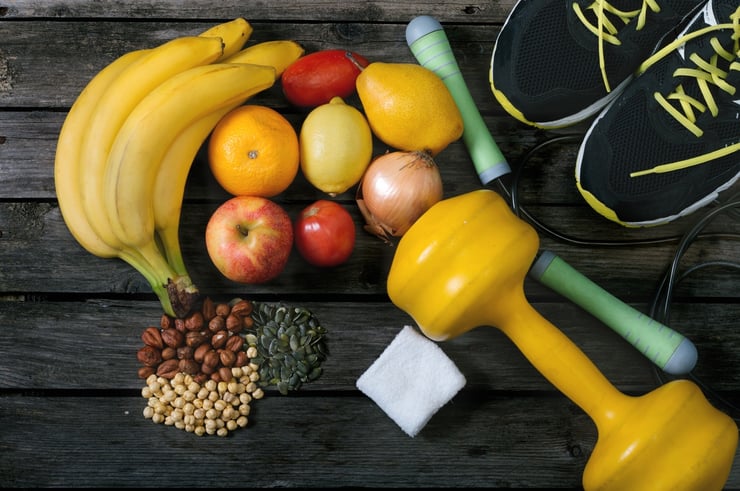
Nutritionists and healthcare professionals have long emphasized the importance of balanced diets in athletes, but these warnings often go unheeded. A healthy diet can, in fact, be the key to unlocking your optimum athletic performance, but probably not in the ways you would think.
Training and physical activity produces stress hormones. These hormones are combated when your body releases energy stores, such as fat. Yet, if these hormone levels remain too high for too long, you put your immune system at risk. Low blood sugar is one of the main ways that stress hormones are regulated, however over consumption of proteins and carbs can also stifle your immune system. This is why eating a well balance diet to maintain blood sugar levels is integral for athletes.
As an athlete, you lose a lot of fluids from sweating. It's important to drink water to replenish lost liquid and regulate your body temperature. Most sport’s professionals suggest that you consume 7-10 ounces of water every 10-20 minutes.
Although they tend to be high in calories and sugar, sports drinks, provide athletes with electrolytes. Electrolytes are lost in your sweat and can help to provide energy and longer spans of performance . Drinking too much of these drinks can negatively affect your blood sugar, but using them in moderation can significantly benefit athletes. You can even try to make your own healthy version - check out this DIY guide.
Depriving your body of proper nutrients will weaken your immune system and hinder your performace. While it may seem overemphased in today's world of fad diets, eating healthy WILL improve your performace. Try our nutrition tips for athletes and see for yourself! If you've already adopted a healthy diet, what are your favorite post-game meals?
